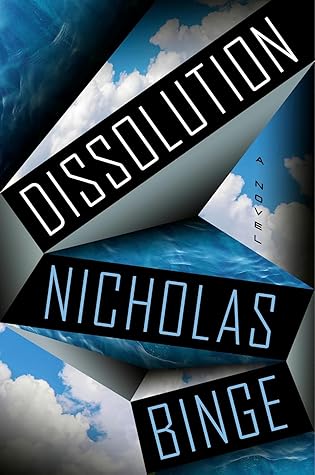More on this book
Community
Kindle Notes & Highlights
“It occurs to me that at some point, you pick up your child for the very last time. And you don’t know. At the time, you don’t know that it’s the last time you’ll ever do it.” He was right, of course: Endings don’t announce themselves. They sneak around you; they shuffle their way past unnoticed until, on some cloudy day, you look out on an empty street and realize everything ended some time ago.
Everything in his life up until that point had been small and inconsequential—a fusty bedroom, a tiny kitchen, a cowering mother. The biggest thing he’d encountered in his daily life was a fist.
Sometimes that’s what I feel like I have in place of a daughter now—cold emptiness and unanswered questions.
But I realized that they weren’t pretending at all; nobody bothers to remember anyone’s name anymore. Why would you when the information is always right there? Genuine interaction has been replaced by easily simulated authenticity.
Intuition is based on subconscious memory. The more you remember, the more you can understand.”
“There is never a good reason to suppress knowledge, Maggie. Throughout history, humanity has tried, from religions and censorship to inquisitions and dictators. People who benefit from the status quo. People who are scared of change.
Well done. Why are you smiling? I just told you I ignored you. Sometimes I deserve to be ignored.
The longer time goes on, the more people remember what they want to remember—the version that helps confirm the feelings they still feel.
Instead of looking forward, it looked back: to a time when hierarchy was explicit and unquestioned, and when the quality of your character was significantly less important than the class and circumstances of your birth.
There was something eternally reassuring about a pub. When the project became too much and he needed an escape, he scrounged up just enough money to spend on a pint so that he could sit in the corner of a good pub and read a book.
There is a reason why the classical goddess of memory—Mnemosyne—was the mother of the Muses. Having an expansive memory is the essence of creativity, and creativity is the cornerstone of all human progress.”
“And yet”—Stanley raised his finger up—“our culture now is built entirely on the false gods of externalized memory. People need to remember less and less with every passing day. But imagine if all the ink from all the books, and recorded pieces of data, suddenly disappeared tomorrow. Our entire culture would collapse.
The real question is this: Did discovering these technologies cause us to be worse at remembering, or did our failing memories force us to create them out of necessity? Are our memories getting worse?”
But it was those first few moments: They were the crucial minutes in which most of the memories disappeared. Everything Waldman had taught them—the memory palace, the imagery techniques, the associations—had been designed to combat the curve.
The point is, it’s not a capacity issue. Your brain hasn’t forgotten which pictures it saw; it just isn’t letting you access them. This is like a loophole—a little work-around to trick your brain into letting you remember them.”
He hadn’t mentioned the professor’s mysterious final words, but they still rang clear in his head. It hungers. An immortal bane, dread, and dire, and fierce.
Stanley didn’t think he’d ever seen any emotion on it other than fierce industriousness or utter focus. He’d tried to engage with him multiple times and had been met with nothing but a blank practicality that verged on obstruction.
“If the present only exists when it’s observed, what if the past only exists because it’s remembered?”
“It might not be legal, but I’ve done everything I can to ensure this is as ethically sound as possible. They’re all consenting adults.”
What the hell are we doing? Are we making a mistake?” He didn’t say the words that plagued him, that ran through his head over and over again: An immortal bane, dread, and dire, and fierce.
He said that the heart of that drive to create something strange and passionate and wonderful lies in ‘trying to heal the wound that never heals.’
But if they could overcome the memory plateau first, if they could ensure that their test subject had access to what Stanley had been trying to unlock from the start—perfect, flawless objective memory of the past—then the observation of the memory should entangle with the collective past. The changes would exist for everyone, everywhere. They would stay.
That’s when the door opens. You’re on the other side, smiling. This time it’s genuine. I can tell—I’ve seen enough nature documentaries. It’s the smile a wolf gives before it bites you.
“They are scared of it,” you add, with a hint of a sigh. “And they believe that knowledge can be contained, despite the entirety of human history proving otherwise. It’s not that we here at the Institute do not realize there are dangers inherent in such a discovery; we merely acknowledge that these things cannot simply be buried. That if they are to be dealt with, they must be dealt with head-on.”
“Always living in the future. Take it easy. You’ll find out when the time is on us. Enjoy the present. It’s happening right now.”
“Because you’re asking the wrong people,” he said. “The people who don’t listen.”
It’s not that you ignore the knowledge we have; it’s that you ignore the entire knowledge framework. Any knowledge that isn’t come to by strict logic and empirical science is unimportant.


